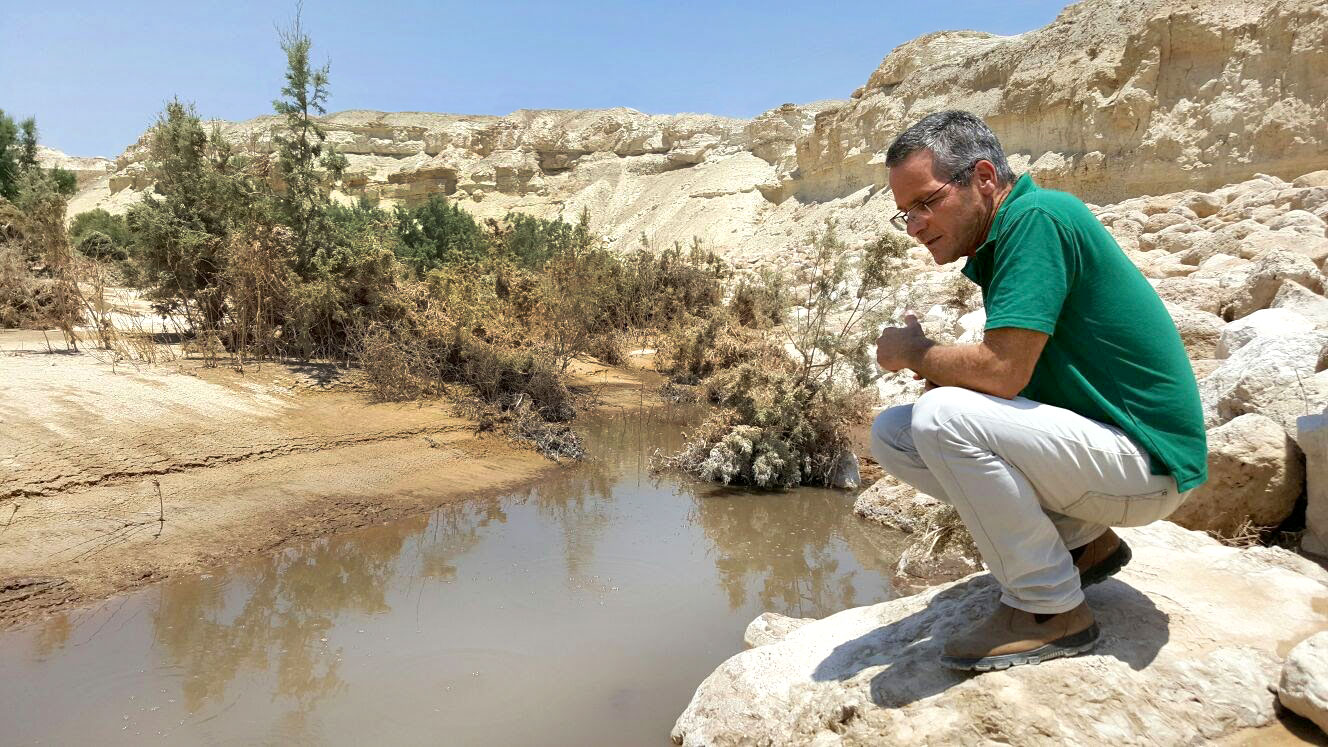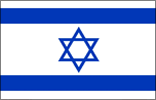
23 Jan Healing the Land; Healed by the Land
by Rabbi Paul Citrin
Monday, January 23, 2023
On a January day in 1925, Chayim Nachman Bialik delivered the keynote address at the inauguration of the Hebrew University on Mount Scopus. Two themes in his speech stand out: Eretz Yisrael rehabilitates the Jewish people, and the people heal the land of Israel.
Regarding the first point he said, “Without Eretz Yisrael…there is no hope for the rehabilitation of Israel anywhere, ever.”¹ To the second idea he stated, “Undoubtedly, many years have yet to pass until we have healed the desolate land of the leprosy of its rocks and the rot of its swamps.”²
Five years prior to Bialik’s speech in Jerusalem, Aaron David Gordon, the kibbutz laborer and philosopher of labor, wrote in a mystical tone: “There is’ a cosmic element in nationality which is its basic ingredient. That cosmic element may best be described as the blending of the natural landscape of the Homeland with the spirit of the people inhabiting it.”³
Rav Avraham Yitzchak Kook who was also a religious mystic yet sufficiently aware to recognize and to support secular pioneers wrote, “…one can live spiritually in the land of Israel only by cleaving to the people of Israel….”⁴
In Torah itself Eretz Yisrael is sometimes referred to as menucha (e.g. see Deuteronomy 12:9), the place of rest or rehabilitation from servitude and warfare. Arthur Waskow defined menucha as our return to a state of nature that results in the integration of the cosmos and society.⁵ The land is also called nachalah, a place of inheritance, a haven.
The variety of parallel expressions about the Jewish people and Eretz Yisrael are urgent for us to consider. The seventy-fifth anniversary of Medinat Yisrael is a liminal time not only for the State, but for Jews around the world as well. One of the heated and ongoing discussions in the Jewish media has been about the widening gap between North American Jewry and Israeli Jews. Jews in Israel focus heavily on issues of security because of aggressive threats from Hamas, Hezbollah and Iran. While hundreds of thousands if not millions of Israelis deeply care about protecting democracy, civil liberties, the authority of the High Court and economic justice, others have despaired of peace with the Palestinians and favor annexation of parts or all of the West Bank. A hallmark of the current extreme rightist government is its emphasis on its own version of what constitutes Jewish identity, and prioritizing that definition over democracy.
American Jews over fifty years of age tend to support Israel with fervor. Younger Jews have a more difficult time relating to Israel and its government policies. The right wing and religious commitments of the present government are alienating many Jews of all ages. Living two generations post- Shoah makes the need for a Jewish state seem less imperative in the view of some of our college youth and twenty year olds. The drift away from Israel, even hostility toward it, raises the question of how we bridge the divide between the North American Jewish community and the Israeli Jewish community. It leads us to wonder from afar how the chasms among groups in Israeli society can avoid becoming disconnected by ideological gulfs.
Personally, I begin by affirming the need for a sovereign Jewish state, and its crucial presence for all of world Jewry. The Jewish people’s historic tie to the land of Israel validates the State’s existence. The toil and sacrifice of its pioneers and builders and the millions of immigrants who sought, and still seek, refuge in Israel comprise the foundation of the State. Though many of us reject the policies, intentions and values of the present government of Israel, we should not disconnect ourselves from our Israeli brothers and sisters. They make up the largest Jewish community on the globe. They preside over a vibrant culture in the arts and sciences. Diaspora Jews need a bond with Israeli Jews, and we hope it is a reciprocal commitment.
Mijal Bitton, Scholar in Residence at the Shalom Hartman Institute of North America, articulated a platform which can undergird our commitment to the Jewish people in Israel even as we oppose government policies of discrimination in the arenas of the political, religious, educational and social welfare.⁶ In Sources, a journal of Jewish ideas published by the Hartman Institute of North American in fall of 2022, Bitton gives us an essay entitled, “Ne’emanut – Placing Relationships at the Center.” She begins by defining the word “ne’emanut”: living as an example of loyalty, steadfastness, commitment. She puts forth the claim that the ne’emanut we feel, display and act on toward others is rooted in unconditional relationships. Those relationships become ethical commitments in and of themselves. Her ideas are inspired by Meir Buzaglo, Emmanuel Levinas, Martin Buber and Alasdair MacIntyre. Living a stance of ne’emanut, being steadfast and faithful to family members and to tribal partners is activist and particularistic, but a necessary precursor to the values of universalism.
Bitton makes two clear points about our ne’emanut toward Israelis and Israel:
1) Being in ne’emamnut with Israel is not unquestioning loyalty. We can be critical of the government of Israel, and still be wholly invested in maintaining the relationship with Israelis.
2) Ne’emanut toward Israel does not mean we preserve. Our relationship so we can change Israel. The relationship itself is sacred.
These two points, she emphasizes, do not erase moral questions and challenges of issues like treatment of Palestinians, racism and women’s rights. Bitton’s Zionism is devoted unconditionally to the Jewish people. Her Zionism aspires to create closer Israel – Diaspora ties as well as the realization of Israel’s moral and human potential.
Our ne’emanut for Israel and its people can effectively influence the country in positive ways. One would be correct to think that our efforts to strengthen Israeli democracy, equality, pluralism and environmentalism are best channeled through non- governmental organizations. NGOs display ne’emanut for the country and for fellow NGO members. Of course, there are many NGOs which speak to liberal Jews: the Israel Religious Action Center, Hiddush, Yad b’Yad Jewish- Arab schools, Yad Lakashish to sustain the elderly poor. They are all worthwhile.
The NGO to which I am deeply committed, or shall I say which is the vehicle of my own ne’emanut, is the Society for the Protection of Nature in Israel. (SPNI). In North America, we call our supportive, sustaining organization, Nature Israel. I have been a board member of Nature Israel since 2020, and will be a contributor both monetarily and in board work for the foreseeable future. I support SPNI for its outstanding environmental projects. I believe as well that if there is one thing Jews in Israel and the diaspora can affirm it is Ahavat Ha’Aretz, love of the land. SPNI can bind all Jews by focusing on the topography, climate, flora and animal species within Israel’s mere three hundred eighty mile length. Together with SPNI, all of us can address Israel’s environmental issues while recognizing at the same time our passion for the land. SPNI is a vital means for maintaining communication among different segments of Jewry in Israel and North America.
SPNI began about 1953 as a response to the draining of Lake Hulah. The effort to remove the water and to claim its lake bottom was not about malaria. The purpose was to reveal and prepare more farm land in the upper Galil. Scientists, birders and residents of the area realized with the draining of Hulah, Israel would lose many species from the natural habitat of the Galil. They witnessed the criminal loss of a crucial wetland which sustained the half a billion migratory birds which overfly Israel twice a year. These astute and caring people lobbied intensely to have the Hulah reflooded to become once again the habitat it had provided for numerous creatures.
During its sixty-three years of existence, SPNI has logged numerous environmental victories. Here are some areas in which SPNI has labored, and continues to do so:
—On-line programs and events for the Israeli and diaspora publics to connect to the ecology of the land. This includes presentations about bird migration, species preservation guarding against environmental damage and an ethic of caring for the land.
—Creating and maintaining the national hiking trail system. There are hundreds of kilometers of well-marked trails all over the country. Walking them is exhilarating. It brings us into intimate contact with Israel’s landscape. SPNI has developed outstanding maps and guides for this trail system.
—Fighting environmentally harmful plans and initiatives of the government, corporations and the army. This includes efforts to preserve ecologically endangered areas from hotel buildings and road building, from polluting chemicals and encroachment on animal sanctuaries.
— SPNI is working now to reclaim many streams in Israel which became polluted over the years. It has brought several back to pristine cobdition. The preservation of the shrinking Dead Sea is a high priority of SPNI. The Hulah valley nature preserve is a resource for bird migration. Israel continues to be the flyway for hundreds of bird species in their hundreds of millions.
—Building and maintaining research stations and field schools all around Israel. Fifteen such schools have been in operation around the country to teach environmentalism and to increase love of the land.
—Arab citizens of Israel participate in the work of SPNI as well. They also share love for the land. Jordanians have also worked with SPNI on common concerns of water, species preservation and Dead Sea maintenance. What politicians have been unable to achieve in people to people contact, SPNI does, creating bridges between Arabs and Jews.
In addition to these areas of SPNI’s work, a new project called Start Up Nature is underway. Here is a quote about it from SPNI literature: “Start Up Nature is a bold venture to reclaim and rewild abandoned agricultural spaces and transform them into a network of world class wildlife sanctuaries and ecotourism destinations. SPNI will both secure the world’s largest flyway and help Israel uphold humanity’s responsibility toward nature, propelling Israel on to the stage of global conservation. Start Up Nature represents the best of what Israel is—vision, innovation, and the Jewish values of humanity and responsibility.”
Despite the vision and the mission of SPNI which, in my view, is self-validating, some critics of Israel have accused the environmental NGO of being a green shield which hides Israel’s treatment of the Palestinians. This is a calumny which SPNI contradicts by its work with West Bank Palestinians and Jordanians on water issues and on natural pest control. General (ret.) Mansour Abbas of Jordan works closely with SPNI on projects on both sides of the border. Arab students from the West Bank participate in environmental seminars. Neither the struggle for human rights nor dedication to protect the ecology of Israel/Palestine needs to take precedence of one over the other. In the current state of the earth’s climate and the Israeli struggle to preserve democracy both are issues of urgent priority.
North American rabbis and leaders have a role to play with SPNI. The role begins with familiarizing your community with the existence of SPNI and its work. We do well to encourage a philanthropic participation with SPNI. When we lead tours to Israel we can enrich our itinerary with visits to Kfar Ruppin wetland reserve, to the Hulah Nature Preserve, to the Gazelle Park in Jerusalem city limits, and to the Jerusalem Bird Obsdervatory.
A few years ago, I went into a bookstore in a Jerusalem alley way. I found a wonderful and very valuable book which I have used with much satisfaction. It contains information and guidance for forty hikes on the Golan and in the Galil. The title is Maslulim—L’hitaheiv Ba’Aretz Mei-Chadash (Hikes—To Fall in Love With the Land Anew). That title suggests our task: through love of the land, we renew our bonds to Israel and to one another. Through love of the land, we can overcome sinat chinam among factions in Israel and in the diaspora. Through love of the land, through our ne’emanut, we can attain love of our people anew.
Rabbi Paul Citrin (C 1973) is retired in Albuquerque where he teaches and writes.
Notes
1) Hertzberg, Arthur, The Zionist Idea, p. 28
2) ibid. p. 285
3) ibid p. 379
4) Mirsky Yehudah, Rav Kook, p. 160
5) Waskow, Arthur, Down to Earth Judaism, p.363
6) Bitton, Mijal, “Ne’emanut” in Sources, fall 2022
7) From SPNI literature in honor of Professor Yossi Leshem






